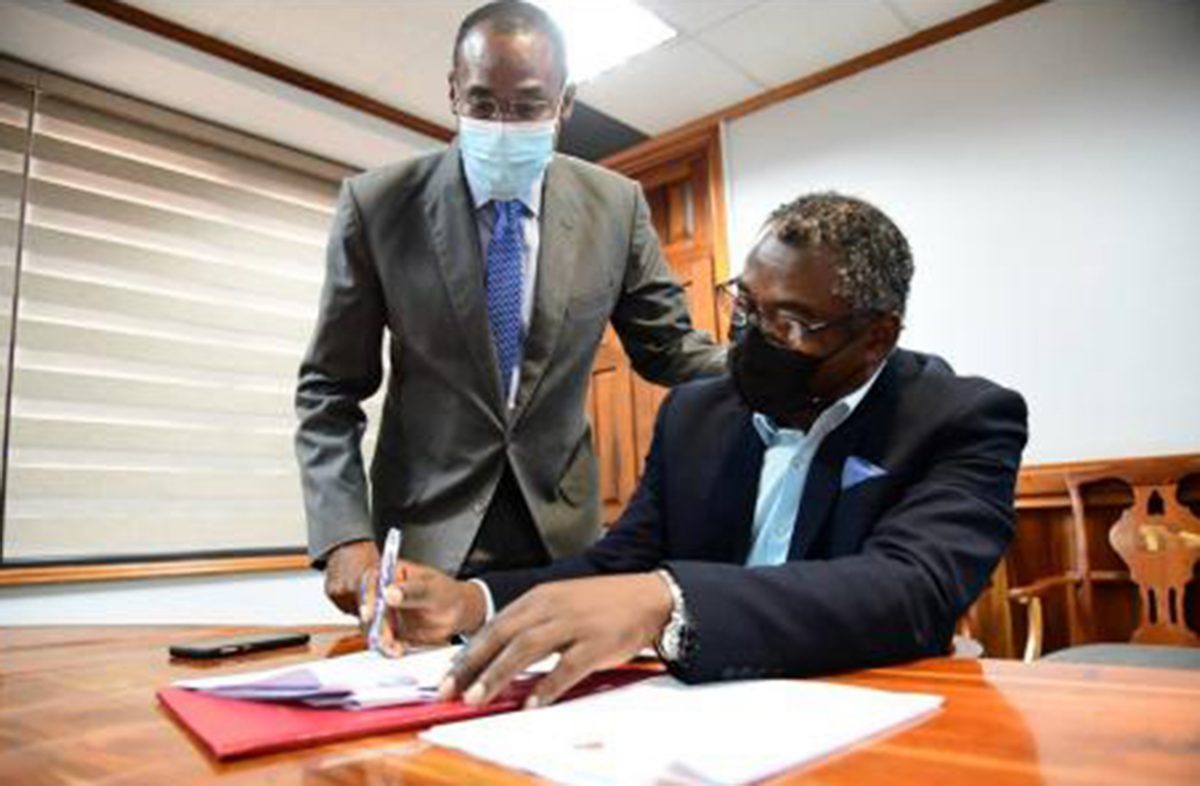In marked contrast to the protestations of the Guyana Public Service Union (GPSU) over what it said were government-imposed wages and salary increases that were devoid of consultations with the union, Jamaica is reporting that more than thirty of the country’s trade unions representing Public Servants have accepted the government’s four per cent salary increase offer for the period April 2021 to March 2022, apparently without murmur.
The Ministry of Finance in Kingston, a Jamaica Gleaner story says, has been able to realise sufficient success from its talks with the unions to allow for 80,000 public sector workers, approximately 80% of the country’s public sector workforce, to have been covered in the talks. Bargaining Units representing nurses, midwives, doctors, and staff of various academic institutions who are represented by six unions and reportedly number around 10,000 workers are all covered by the outcome of the talks.
In the instance of the Guyana circumstance, a long soured union-government relationship, the result of charges on both sides of political prejudice, meant that the 7% salary increase for 2021 was effected by government in December without even a hint of prior discourse with the union.
With previous attempts at wages and salaries negotiations between the GPSU and, particularly, governments formed by the People’s Progressive Party/Civic (PPP/C) having collapsed into industrial relations confrontation and on occasion rumbustious, public protest, salary increases, these days, are announced and effected without a great deal of discourse. The PPP/C administration, the present incumbents, has continually accused the GPSU of favouring its political opponents. In a recent public statement President Irfaan Ali alluded to what he said was the entirely different posture which the GPSU adopts to his government’s political opponents.
Late in December, GPSU President Patrick Yarde, who has held office for more than three decades, asserted that the government’s 7% increase was inadequate, adding that the union was never consulted on the setting of the salary increase. The reality is that such exchanges as have previously taken place between the union and People’s Progressive Party/C-led administrations over salary increases and other issues, over the years, have almost always descended into meltdown and militant demonstrations.
While the government here has effected the 7% payout without engaging with the GPSU, leaving the union fretful over a number of issues including the size of the payout as well as its comparison with bonuses paid to sugar workers, the Jamaican Minister of Finance is quoted as saying in Kingston that the signing of an agreement between government and the unions was indicative of the “seriousness of purpose” with which the government is treating with the negotiations and with public sector compensation in general. Jamaica, he said, was proud of the fact that while the salary increase on offer was modest, an increase was actually being offered in a year that had been particularly difficult.




